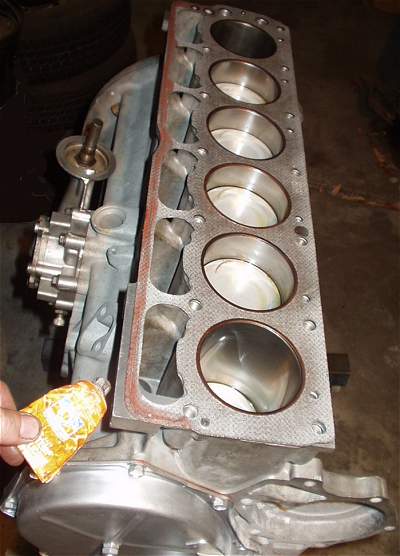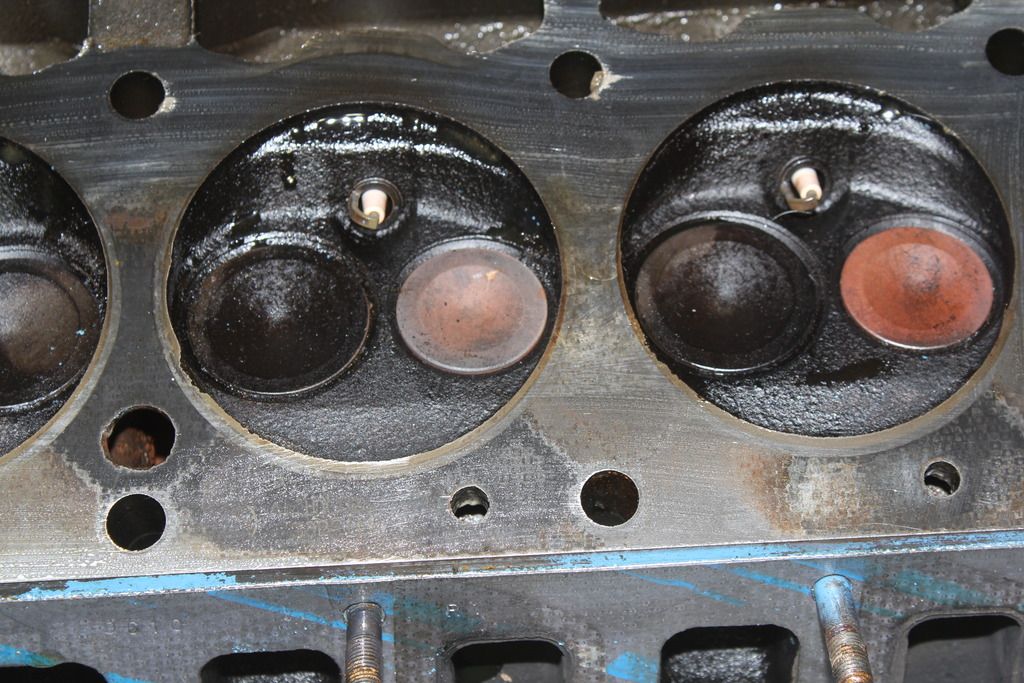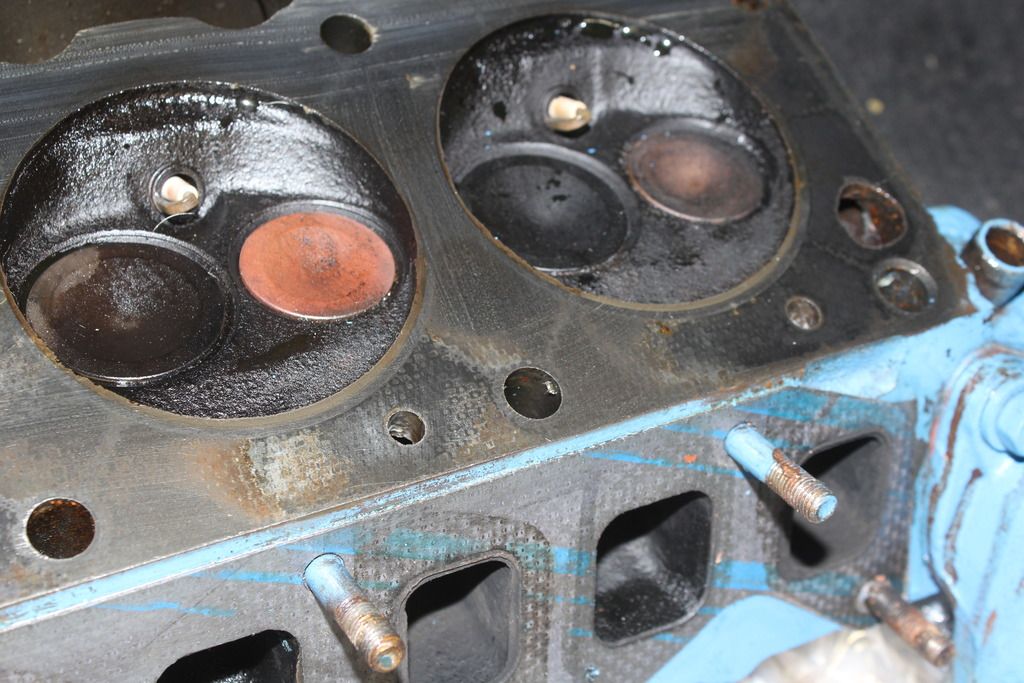Quote:
Quote:
Will they have to be replaced or can they be re used?
They can be reused, no problems. Make sure the bolts are clean and the threads in the holes in the block have been chased and cleaned out and it will all be good to go.Quote:
Is there any simple way to measure the compression ratio without first removing the head?
No. It's a measurement of volume so you need to know the depth of the piston from the deck of the block to the top of the piston at top dead center and bottom dead center, and the volume of the combustion chamber.... which is easy once the head is off...Technically speaking, a loss of 0.020" on a 8:1 engine isn't a really major power loss compared to say a hi-compression race engine where that kind of difference can be a dramatic swing.... I would not sweat it if the engine was 8.1:1 or 8.4:1.... either way if you took the time to make sure the cam was degreed in and advanced a few degrees you might get a seat of the pants feel of a bit more torque....
If you use the OEM shim gasket you will have to make sure that both the deck on the block and the mating surface on the head is clean and flat (measured with a machinist edge and tape... or in a pinch true edge and feeler gauge)... the composite gasket is more forgiving if either surface is out .003-.005...
If you do install a new head gasket, do like Reed had mentioned RTV the seam between the head and block on the back and along the lifter gallery to prevent oil leaks....(this will not prevent leaks if it's the spark plug tubes or seals that need to be replaced...)
Thank you for the tips and suggestions. Today I removed the head and quickly found all the answers to my questions. The gasket used was a Victor Reinz gasket and no RTV was used under the lifter gallery. I also calculated the compression ratio and ended up with 8.25:1. The surfaces are flat so I think I am just going to replace the gasket and add the sealant to the lifter gallery area. The teardown was quick today.
For those interested here are the measurements I took with the head removed.
Bore and Stroke (book values) 3.4" Bore / 4.125" Stroke.
Deck clearance: 0.155"
Compressed Gasket Thickness: 0.037" (Victor reinz)
Cylinder head volume (estimated): 56cc
Compression ratio calculated: 8.25:1
Here are a few pictures.
After smearing some RTV gasket in the crack of the head and the block it made the oil leak a lot more obvious to spot, so with that test it was time to take the head off and order a new gasket.
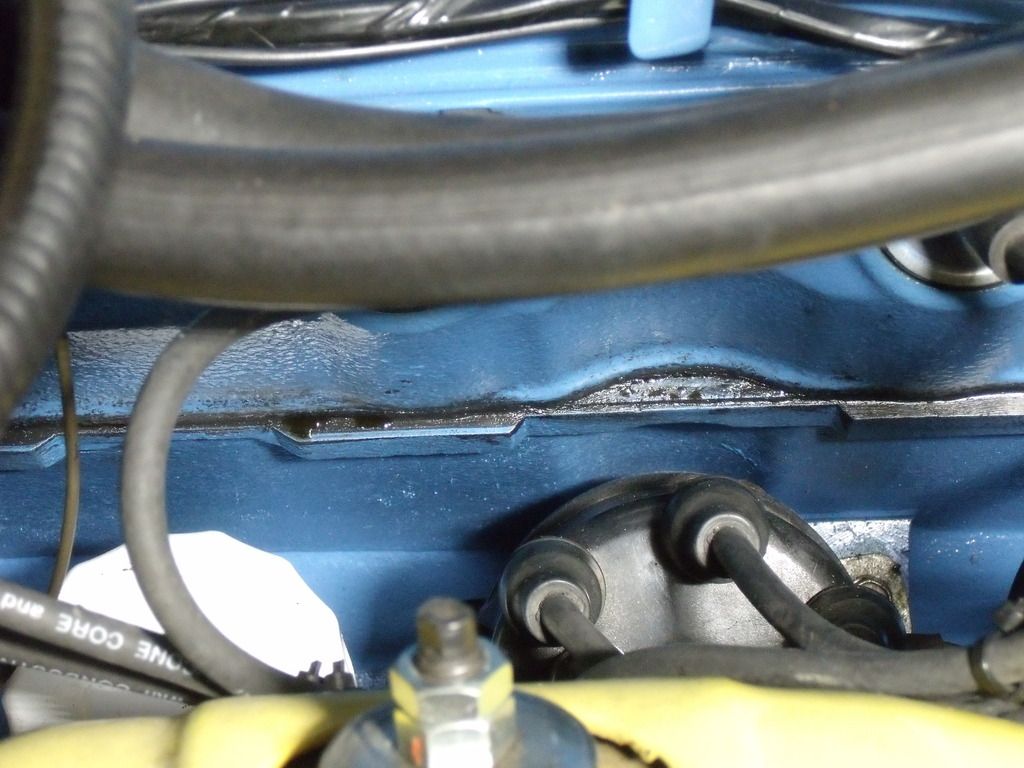
Used the hoist to lift the head out, no sweat no broken back.
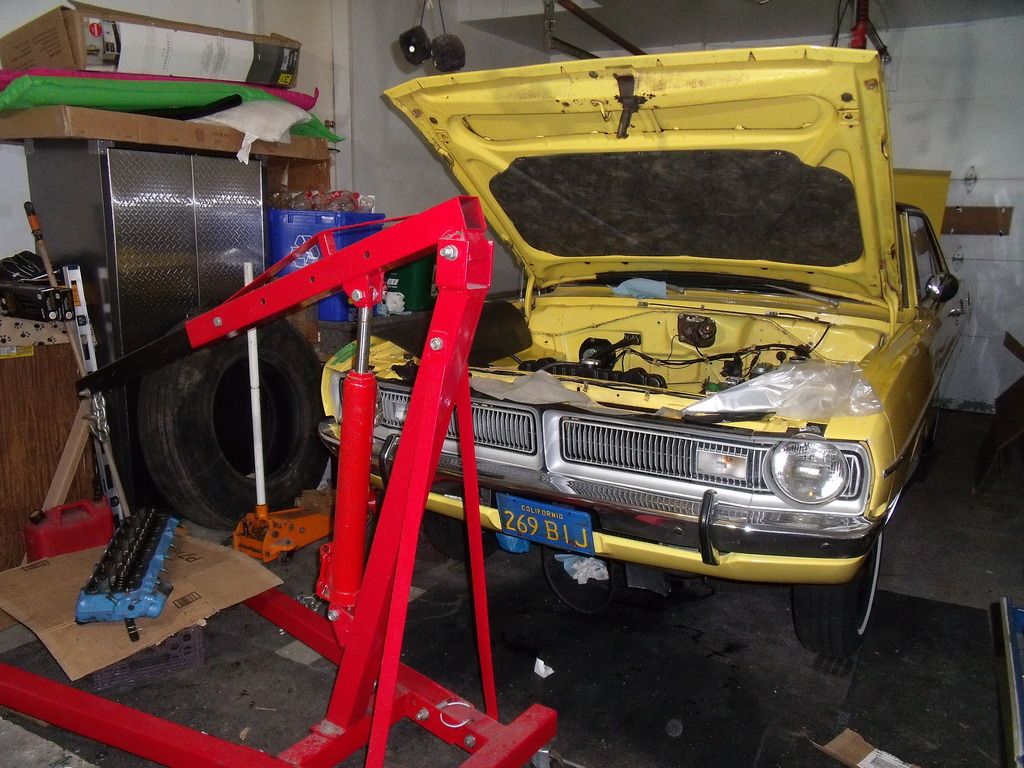
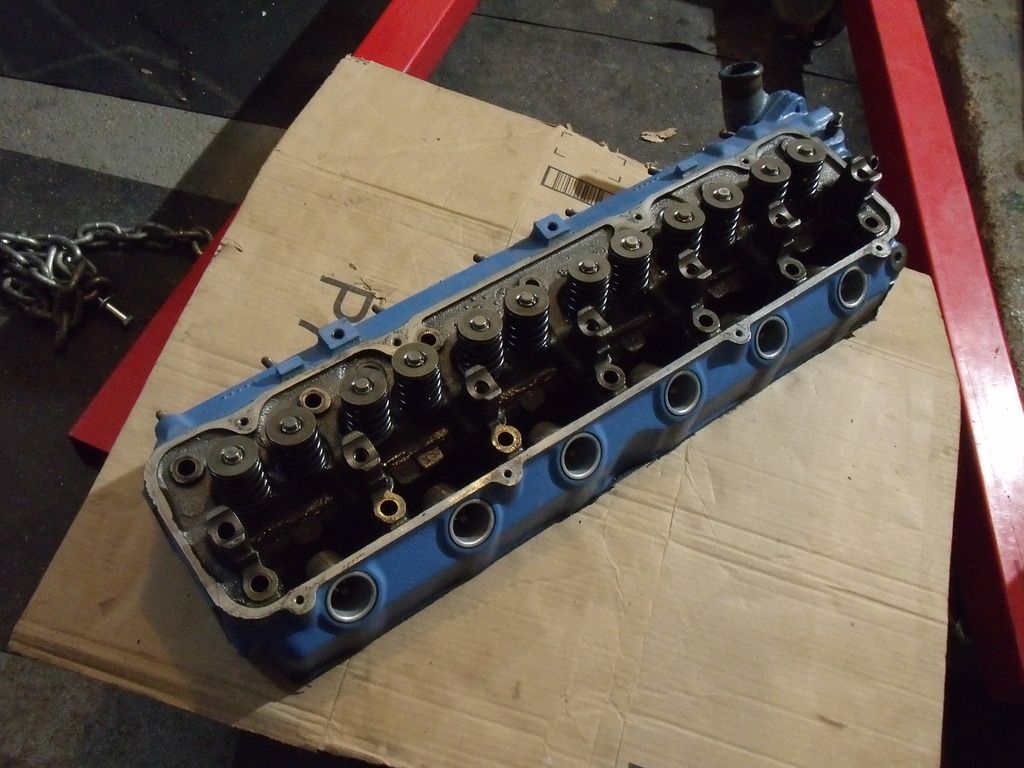
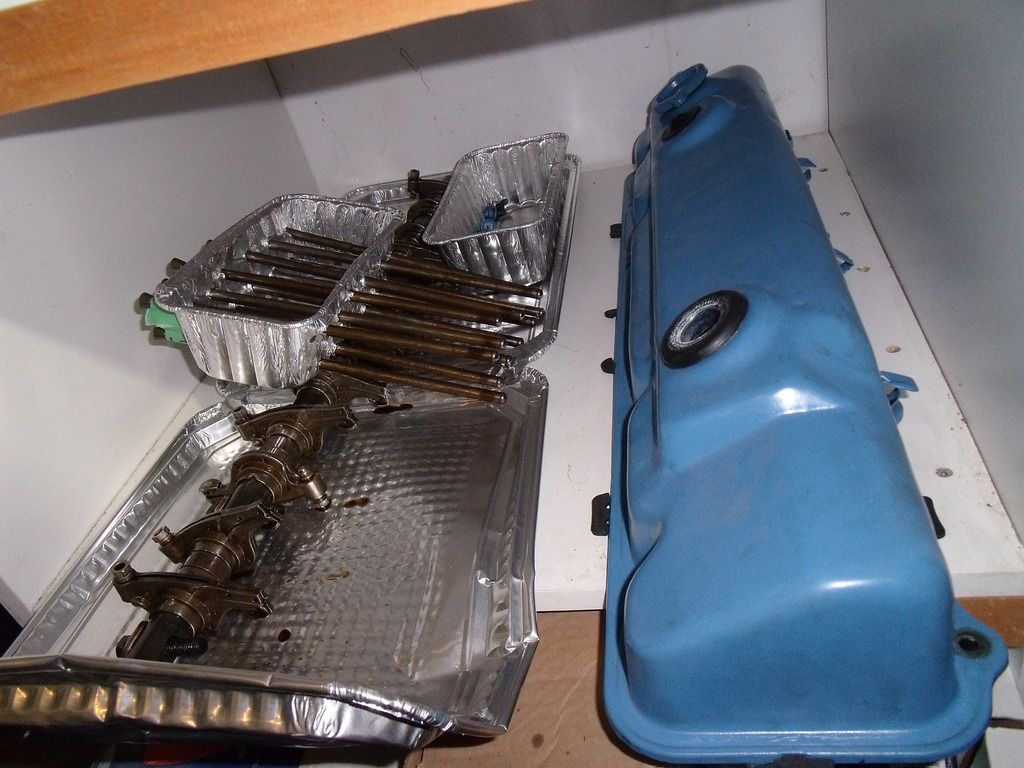
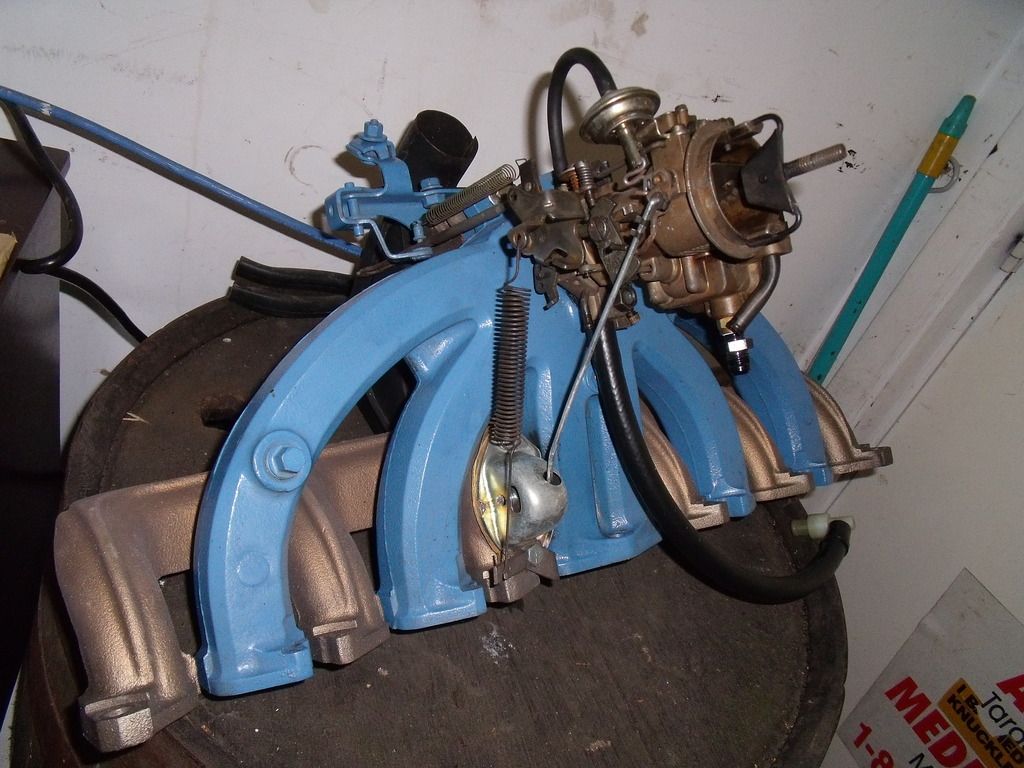
Thank you for the tips and suggestions to everyone who answered me.
